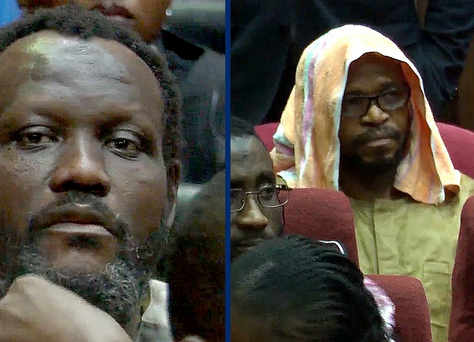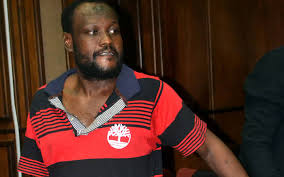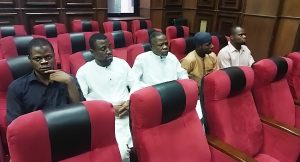Court Orders Speedy Trial in UN Building Bombing Case, Raising Questions on Justice, Security, and Nigeria’s Economic Stability

In Abuja-Nigeria, The Federal High Court in Abuja has ordered an accelerated trial for Khalid Al-Barnawi, the alleged mastermind of the 2011 bombing of the United Nations (UN) building in Nigeria’s capital. The ruling, delivered by Justice Emeka Nwite on Friday, underscores mounting pressure on the judiciary to resolve high-profile terrorism cases that have lingered for years.
The order followed an application from the Department of State Services (DSS), which argued that protracted delays in the proceedings risk undermining both public confidence and accountability. Al-Barnawi, described as a senior commander of the extremist group Ansaru, is standing trial with four co-defendants on terrorism-related charges.

The UN building bombing of August 2011 left over 20 dead and more than 70 wounded, in what was one of the deadliest assaults on international institutions in Nigeria. For many observers, it was more than an attack on a building—it was an assault on global cooperation and Nigeria’s place in international diplomacy.
Al-Barnawi, captured in 2016 in Kogi State, has been linked to insurgent activities across Sokoto, Kebbi, Bauchi, Borno, Gombe, and other northern states. In 2012, the U.S. designated him a global terrorist and offered a $5 million reward for his capture. His alleged group, Ansaru—an affiliate of al-Qaeda in the Islamic Maghreb (AQIM)—claimed responsibility for multiple high-profile operations, including the 2012 Kuje prison raid.
Analysts emphasize that the case extends beyond one man. It highlights the broader challenge of extremist networks tied to illicit trade, arms trafficking, and cross-border smuggling—activities that erode governance structures and weaken regional economic stability.
Terrorist violence in Nigeria is not only a security crisis but also a persistent economic burden. The bombing disrupted Abuja’s central business district, where international organizations, local firms, and government offices intersect. In the years since, investors have often weighed Nigeria’s market potential against the risks of insecurity.
Families of victims continue to bear financial and emotional costs, ranging from loss of breadwinners to long-term medical expenses. For businesses, the attack signaled vulnerabilities in Nigeria’s capital that directly affect investor confidence. Each delay in prosecuting suspects carries a financial cost for the state, stretching an already overburdened judiciary and diverting public funds from social and economic development.
In macroeconomic terms, Nigeria’s counterterrorism efforts have strained fiscal priorities. Spending on security has surged, often at the expense of infrastructure, education and healthcare; areas that are vital for sustainable development.
The bombing carried deep symbolic weight. The UN building represented peacekeeping, humanitarian aid, and cross-cultural cooperation. Its destruction was not just physical but psychological, shaking national morale and creating an enduring sense of vulnerability.
For survivors and families of victims, trauma remains an invisible wound. Beyond Abuja, northern communities linked to Al-Barnawi’s alleged activities face disrupted schools, forced migration, and weakened social fabrics. The rise of extremist groups has eroded traditional communal structures, with many youths drawn into militant groups due to poverty, unemployment, and disillusionment.
Culturally, terrorism has forced Nigerians to navigate life under heightened security, altering patterns of worship, trade, and travel. These disruptions reshape not only economic opportunities but also the way communities relate and sustain cultural traditions.

The court’s directive for a speedy trial comes amid renewed debate on Nigeria’s governance capacity. Successive governments have declared war on terrorism, yet the drawn-out judicial process reflects a gap between military actions and institutional accountability.
Political analysts argue that how Nigeria manages this case will shape public trust in the justice system. A transparent and efficient trial would demonstrate that justice can be pursued without compromising due process, potentially setting a benchmark for other terrorism prosecutions.
At stake is more than the credibility of the courts. Nigeria’s political leadership faces the challenge of ensuring that counterterrorism policies do not erode democratic values or human rights protections.
Nigeria’s handling of the trial is being closely monitored by regional and international partners. As Africa’s largest economy and a key player in West Africa’s stability, Nigeria’s capacity to uphold justice has implications for foreign aid, regional cooperation, and global counterterrorism alliances.
The UN, whose staff bore the brunt of the 2011 attack, remains a vested stakeholder. A failure to resolve the case decisively could weaken Nigeria’s reputation as a safe host for international institutions. Conversely, a fair and timely resolution could reaffirm its role as a reliable partner in multilateral security and humanitarian frameworks.
Justice Nwite ordered that video evidence of alleged confessions would be reviewed under court supervision to determine whether they were made voluntarily. The trial has been adjourned until October 23 and 24 for continuation.
For Nigeria, however, the case is larger than the fate of the defendants. It is a test of whether the nation can integrate justice, governance, and security into a coherent framework that not only punishes violence but also addresses the socio-economic and cultural fractures that terrorism exploits.
In a country where families, communities and businesses remain scarred by insurgency, the trial’s outcome could help shape the narrative of Nigeria’s resilience, or further expose the fragility of its institutions.






